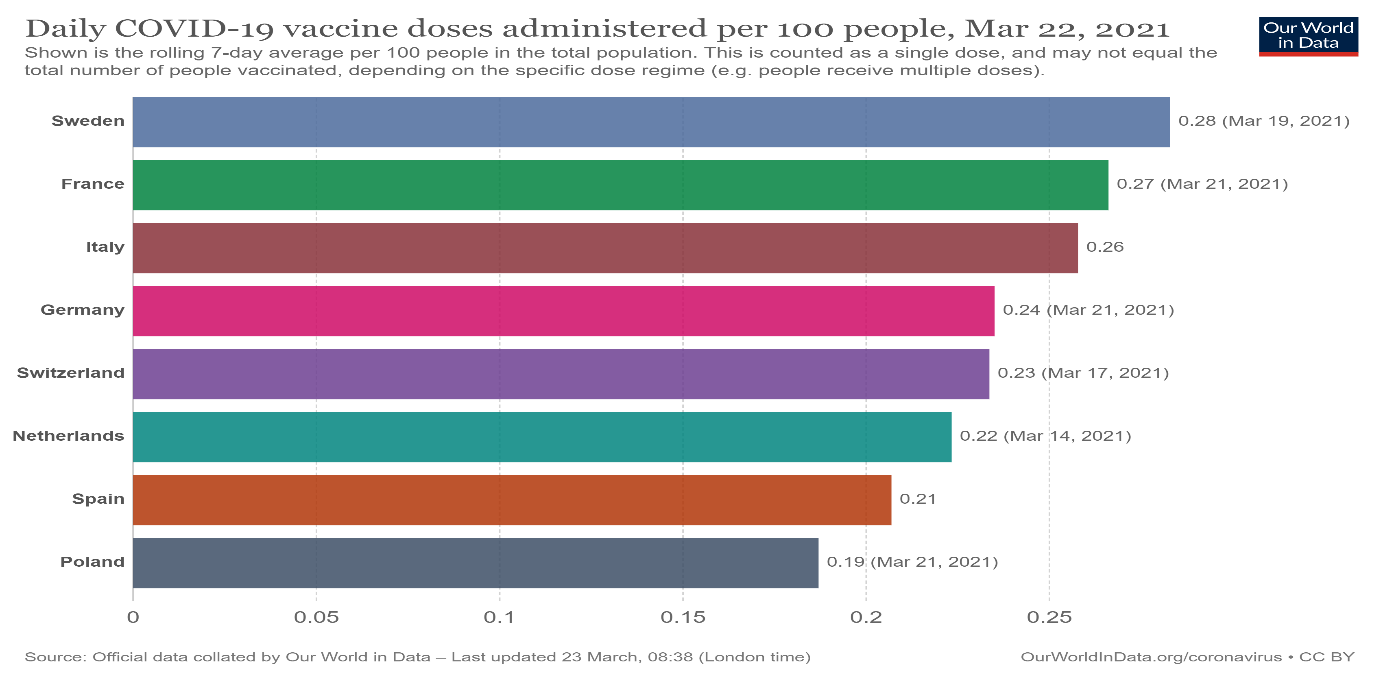Covid-19: 3rd Wave Concerns Raised in Europe
Coronavirus has increased its spread rate with new strains, causing the number of cases to increase again in Europe. For this reason, it was decided to extend the restriction measures taken in November 2020, in leading countries of the continent such as Germany, Italy, and France.
German Chancellor Angela Merkel held video conference with states' leaders yesterday. While the Coronavirus outbreak was the main issue at the meeting, they discussed the increase in cases. In the public part of the meeting, Germany will implement drastic measures on April 1-5 to combat the third wave of the Coronavirus outbreak, while they also announced a decision to stop the Easter holiday. It was pointed out that the current measures were extended until April 18, eliminating rumors that the measures would be lifted in March.
After the decision was made, Merkel said that the current situation is more serious than others, noting that the number of cases has increased exponentially and intensive care units are full now. In addition, the coronavirus variant that has appeared in the UK is very common, Merkel said, adding that it has put Germany in a new pandemic.
The new measures taken in Germany are as follows:
The sports facilities will remain closed until April 18 and current measures will continue.
As of April 1, Germans will be on a lockdown for five days, including Easter.
Personal religious ceremony or services will be cancelled
On Saturday, April 3, all shops will remain closed except groceries.

In France, a one-month curfew has been declared for 15 regions in the capital, Paris, due to an increase in coronavirus cases. French Prime Minister Jean Castex said in a statement that the restrictions would not be as harsh as before, simple activities might be carried out, i.e. people can go out for exercise.
In Italy, which was first affected by the pandemic in Europe, the restrictions started to be implemented again as of March. Prime Minister Mario Draghi said the new measures would be effective as of 6 April, adding that a 3rd wave is on the way.
In addition to the countries mentioned above, Poland was one of the leaders in terms of cases in Europe. Poland reported 14,578 new cases on Monday, up by 34 percent from the previous week. In the UK, British variant accounts for 80 percent of new cases, Health Officials said.
In the final weeks of February, tensions arose between the European Union and vaccine suppliers, while the vaccination campaign slowed across the region. After that, the vaccination operations continued where they left off, thanks to the elimination of the tensions in accordance with the joint agreement. However, AstraZeneca and Oxford vaccines have been suspended by 20 countries following speculations that these vaccines are associated with an increased overall risk of blood clotting disorders. After the European Medicines Agency (EMA) announced that these vaccines are safe to use on Thursday last week, the campaign including these vaccines restarted in Europe. On the other hand, Sweden was the lading country that gained momentum in the vaccination campaign in Europe, while France, Italy and German





